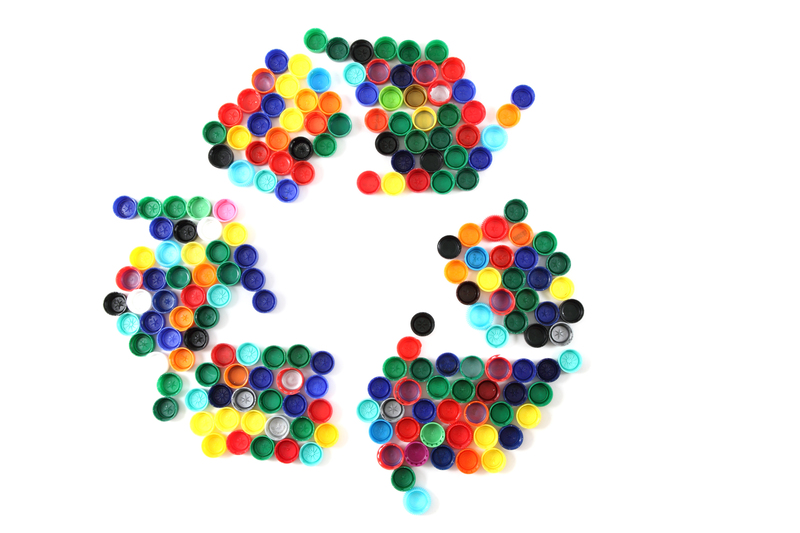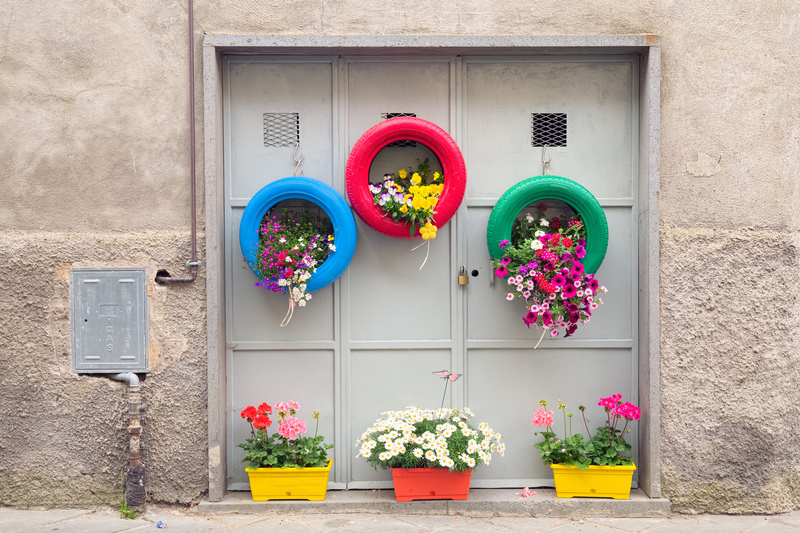Transforming Everyday Moments into Recycling Lessons
Recycling isn't just a chore--it's a vital habit that helps protect the environment, conserves resources, and shapes a sustainable future. Yet, imparting the importance of recycling can feel overwhelming, especially when daily life tends to get in the way. But what if you could transform ordinary moments into engaging recycling lessons? This comprehensive guide will unlock practical strategies to weave eco-friendly habits naturally into your family's routine, making environmental stewardship an effortless part of your everyday life.

Why Everyday Recycling Lessons Matter
Understanding the impact of everyday recycling lessons is key to creating lasting change. When recycling behaviors are reinforced through daily actions, they become automatic, influencing not just individuals, but entire households and communities. Here's why it matters:
- Builds lifelong habits: Learning through everyday moments helps people of all ages internalize the importance of recycling.
- Reduces waste: Routine recycling efforts can significantly decrease the amount of trash going to landfills.
- Encourages conscious consumption: When recycling is embedded into daily life, it prompts smarter purchasing and waste reduction.
- Fosters environmental stewardship: Small, daily actions can spark broader conversations and inspire larger community initiatives.
Integrating Recycling Education into Your Daily Routine
Let's explore creative and meaningful ways to transform simple moments into recycling opportunities. By approaching each day as a chance to learn and teach, you can inspire those around you--whether your children, students, or colleagues--to adopt eco-friendly behaviors that last a lifetime.
1. Meal Preparation and Recycling Opportunities
Rethink Your Kitchen Habits
The kitchen is the heart of the home--and a hotspot for recyclable materials. Use meal prep as an excellent time to introduce recycling lessons that stick. Here's how:
- Sort as You Go: Designate convenient bins for recycling, compost, and landfill waste. Teach kids and family members which items belong where.
- Packaging Check: Each time you open a product, take a minute to discuss the symbols on packaging--explaining what's recyclable and what isn't.
- Compost Conversations: Talk about food scraps that can be composted. Get kids involved in adding peels and stems to the compost bin, reinforcing the difference between biodegradable and recyclable items.
- Zero Waste Planning: Involve everyone in grocery shopping strategies--choose products with less packaging and brainstorm snacks that generate less waste.
Tip: Post a visible guide near your bins with examples of recyclable vs. non-recyclable materials for quick, daily reminders.
2. Turn Recycling Collection into a Fun Family Activity
Make Sorting Fun and Competitive
Weekly recycling collection doesn't have to be a dull task. Instead, turn it into an engaging, educational family event:
- Create a Sorting Game: Set a timer and challenge family members to correctly sort items into recycling, compost, and trash categories.
- Reward Eco-Friendly Actions: Celebrate correct answers with rewards--like a special treat or story time.
- Keep Score: Track recycling accuracy over time. You can even create a leaderboard to motivate children and adults alike.
- Share Fun Facts: Equip your family with intriguing recycling facts during sorting (e.g., "Did you know recycling one ton of paper saves 17 trees?").
Engagement is key to making recycling a regular part of everyday life. Combining learning with play helps to reinforce eco-friendly habits in a memorable way.
3. Out-and-About: On-the-Go Recycling Lessons
Recycling Beyond the Home
Transforming everyday outings into learning experiences is a powerful way to broaden your recycling impact:
- Parks and Playgrounds: Pack reusable bottles and snacks in washable containers. Discard waste responsibly, and point out local recycling bins.
- Shopping Trips: Discuss product packaging and choose items with minimal or recyclable wrapping. Explain store return policies for electronics or hazardous materials.
- Public Spaces: When in a park, mall, or stadium, take time to find recycling receptacles. Encourage children to notice the differences between recycling options in different venues.
Transforming public moments into recycling lessons not only instills mindfulness but also encourages individuals to act as responsible citizens wherever they go.
4. Use Storytelling and Role Models to Illustrate Recycling
Bring Recycling Lessons to Life
Stories are a potent way to illustrate the impact of recycling and waste reduction. Use these tips to make recycling stories engaging and relatable:
- Real-Life Heroes: Share stories of local scientists, community leaders, or activists who are making a difference through recycling initiatives.
- Children's Books: Incorporate storybooks centered on environmental themes. Many children's books use animal or superhero characters to demonstrate the importance of waste reduction.
- Personal Examples: Lead by example--showcase your own recycling efforts, and discuss the changes you've noticed in your home or neighborhood.
Model positive behaviors and celebrate every recycling victory, no matter how small. This approach helps anchor the idea that everyone can contribute to a cleaner world.
5. Leverage Technology for Smart Recycling
Digital Tools Make Sustainable Living Easier
Technology can elevate your everyday recycling lessons and help you stay consistent:
- Recycling Apps: Use apps that identify recyclable materials, provide pick-up schedules, or offer gamified recycling challenges for families.
- QR Codes and Online Resources: Scan packaging QR codes to find detailed recycling instructions or watch educational videos as a family.
- Community Alerts: Set calendar reminders or notifications for local recycling events, electronics drop-offs, or hazardous waste days.
Let your smartphone or tablet be a handy recycling resource--these tools turn small, teachable moments into opportunities for big impact.
6. Holiday and Special Event Recycling Lessons
Seize Celebrations for Green Education
Holidays and special occasions provide a unique chance to reinforce sustainable habits while celebrating with loved ones:
- Gift Wrapping: Choose recyclable wrapping paper or reusable bags. Involve children in making cards and decorations from upcycled materials.
- Party Clean-Up: Set up clear stations for trash, recycling, and compost during gatherings. Discuss why separating items matters.
- Eco-Friendly Gifting: Give experiences or green gifts like reusable water bottles, beeswax wraps, or a compost bin.
- Post-Holiday Sorting: Use time after major holidays to discuss what can be recycled, reused, or donated--like old electronics, toys, and clothes.
By linking recycling lessons to meaningful events, you not only make the activity memorable but also let the message resonate long after the celebration is over.
7. Recycling Lessons in Schools and Workplaces
Fostering Community-Wide Change
Transforming everyday moments into learning opportunities isn't confined to home; classrooms and offices are equally vital arenas for change:
- Classroom Projects: Teachers can incorporate art projects using recycled materials or start a classroom-wide recycling program.
- Office Recycling Challenges: Encourage coworkers to reduce printing, recycle old electronics, or implement a "Bring Your Reusables" day.
- Awareness Campaigns: Share regular statistics and stories about the positive impact of recycling in school or work newsletters.
Collective action amplifies positive results. When schools and businesses prioritize recycling, it fosters a culture that extends beyond the building's walls.
Overcoming Common Recycling Challenges
Addressing Barriers to Effective Household Recycling
While the benefits of recycling are clear, families and individuals face real challenges--such as confusion over what is recyclable, lack of convenient facilities, or skepticism about recycling's impact. Here are strategies to overcome roadblocks:
- Combat Confusion: Keep a handy list of recyclable items specific to your local program. Visit your city's recycling website for clarity.
- Accessibility: Ensure bins are easy to reach in high-traffic areas like the kitchen or garage. Make recycling as convenient as throwing something away.
- Addressing Contamination: Rinse containers before recycling and avoid putting non-recyclables in the bin. Use visual aids to educate younger family members.
- Measuring Impact: Track your household's progress together--log the amount you recycle each week and set goals to increase it.
Remember: Every family's situation is unique. Adapt your ongoing recycling lessons to fit your space, resources, and community guidelines.

Inspire Change with Every Moment
Ultimately, the journey to a world with less waste and more responsible consumption begins with transforming everyday moments into recycling lessons. When you normalize recycling within your home, school, or workplace, you foster a culture of sustainability that ripples outward.
- Start small: Focus on one or two changes at a time to prevent overwhelm.
- Be consistent: Make recycling part of your routine, like turning off lights or brushing your teeth.
- Share and celebrate: Recognize successes and talk about challenges with family and friends.
- Stay curious: Keep learning and exploring new ways to reduce waste and support the environment.
Your daily choices matter. By making recycling education a natural topic in your everyday interactions, you're not just teaching others--you're leading by example and instilling values that will last for generations.
Conclusion: Every Day Holds a Recycling Lesson
Every trip to the store, meal prep session, or classroom project is an opportunity to reinforce planet-friendly habits. Transforming everyday moments into recycling lessons isn't just about putting materials in the right bin--it's about creating a mindset that values the Earth and understands our role as stewards. Be proactive, patient, and persistent. The planet--and future generations--are depending on it.
Start today. Look for those small, teachable moments, and transform them into impactful recycling lessons that shape a better tomorrow.